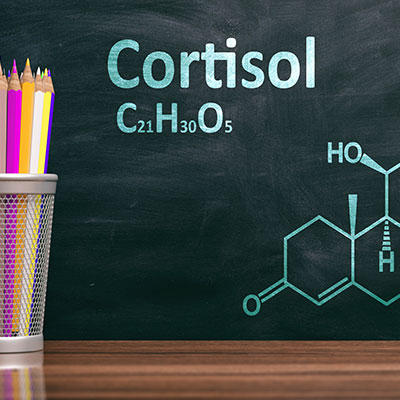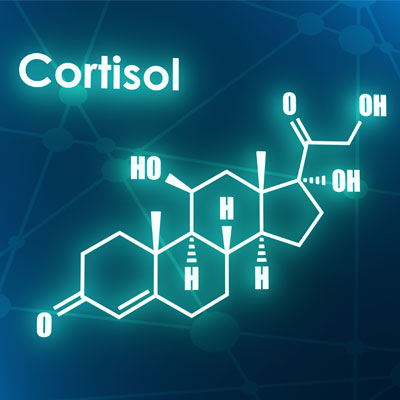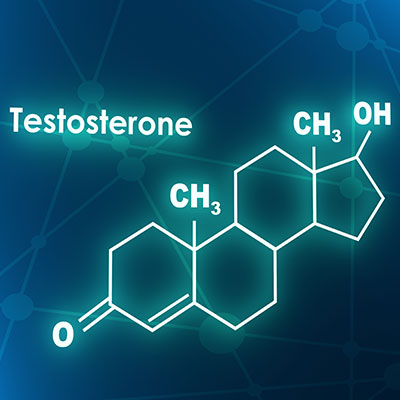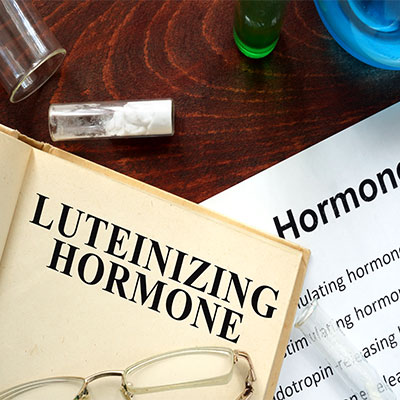How Stress Impact on Testosterone Levels
Contents

There is a growing body of evidence that suggests a link between low testosterone and stress.
Contrary to what you might think, stress does not increase testosterone. It may seem logical to assume that during a crisis, your “fight or flight” reaction may cause a burst of testosterone to flow into your blood to deal with the emergency. This is a misconception.
The hormone related to stress and your “fight or flight” reaction is not testosterone but rather cortisol. Cortisol is the “stress hormone.” It is cortisol that is released into your blood that causes the release of adrenaline and the subsequent higher heart rate that gives us the physical boost you need to escape or handle danger.
However, cortisol and testosterone are antagonists. High levels of cortisol in your blood actually lower your testosterone level. Therefore, men who are often under chronic stress are likely to experience low testosterone and vice versa.
What is Stress?
The medical dictionaries describe stress as a feeling of emotional or physical tension. It can come from any event or thought that makes you feel frustrated, angry, or nervous.
Stress is part of your body’s natural defenses linked to your “fight or flight” response. Stress is your body’s reaction to a challenge or demand. In short bursts, stress can be positive, such as when it helps you avoid danger or meet a work deadline. But when stress lasts for a long time, it may harm your mental, physical, and emotional health.
The symptoms of chronic stress include:
- Feeling overwhelmed
- Insomnia
- Having a hard time concentrating
- Memory problems
- Irritability
- Changing eating habits
Long-term or chronic stress has a number of detrimental health impacts, not the least of which is that stress can lower your testosterone levels.
Why Does Stress Decrease Testosterone?
Stress is a prime mover of your body’s “fight or flight response.” When you are in a stressful or dangerous situation, your body responds by releasing certain stress hormones — primarily cortisol and adrenaline. Cortisol is known to be a “testosterone killer.” Several peer-reviewed scientific studies have shown that men with high levels of cortisol have low levels of testosterone.
The Stress Process
Your body reacts to stress by releasing hormones. These hormones make your brain more alert, cause your muscles to tense, and increase your pulse. In the short term, these reactions are good because they can help you handle the situation causing stress. This is your body’s way of protecting itself.
However, a buildup of too many stress hormones, particularly the stress hormone cortisol, can have damaging effects.
Understanding the Stress Hormones

Of these, an excessive amount of cortisol in the bloodstream as a result of chronic stress or anxiety can have several health consequences such as:
- Increased blood sugar
- Weight gain
- Lowered immune response
- Digestive issues
- Increased risk of heart disease
- Lowered testosterone levels
Can Anxiety and Depression Cause Low Testosterone?
Like stress, related conditions such as anxiety and depression can lower your testosterone levels.
According to the Mayo Clinic, depression is defined as “a mood disorder that causes a persistent feeling of sadness and loss of interest. Also called “major depressive disorder” or “clinical depression,” it affects how you feel, think, and behave and can lead to a variety of emotional and physical problems.”
Current statistics from the Anxiety and Depression Association of America say that major depressive disorder affects an estimated 16.1 million adults annually in the United States alone.
The World Health Organization describes depression as “the leading cause of ill health and disability worldwide.”
There is a growing body of evidence that suggests a link between low testosterone and depression. Specifically, current research has shown a definitive link between low levels of testosterone and increased depression and anxiety. A 2016 study published in the journal, Psychoneuroendocrinology found that in older men, “low serum testosterone was associated with an 86% increased hazard of depression.”
Looking at the reverse relationship, it is hard to say if low testosterone “causes” depression, but the correlation between men with low testosterone and depression, anxiety, irritability, and other mood swings has been well-documented. Low testosterone also leads to erectile dysfunction, low sex drive, and a lack of physical energy. These physical symptoms can lead to less enjoyment in life, which increases stress and can lead to depression. But there could be something more to the link between low-T and depression.
Testosterone is necessary to produce serotonin and other important neurotransmitters. Neurotransmitters like serotonin are the brain’s “feel-good” chemicals that help to regulate mood and stave off depression. In fact, most antidepressants work by keeping levels of serotonin high.
Managing Stress and Low Testosterone
There is little doubt that high levels of stress and low levels of testosterone are intricately related. Stress and testosterone exist in a kind of vicious cycle – with low testosterone leading to more stress and more stress leading to low testosterone and vice versa and on and on and on.
Taking serious efforts to reduce stress will not only help to maintain your testosterone levels, but stress reduction has a number of other health benefits. Here are some proven ways to reduce stress:
- Learn to relax. You need to give yourself a break every day. At some point, walk away from your desk, if possible, or if not right there, just slowly take a deep breath in, hold it, and then exhale very slowly. Do this at a 2:1 count; in other words, inhale for four seconds, and exhale for 8. At the same time, just let go – smile, and say something positive like, “I am r-e-l-a-x-e-d.”
- Practice acceptance. Many people get distressed over things they won’t let themselves accept. Often these are things that can’t be changed. Try accepting the things you can’t change – and stop stressing over them.
- Get a good night’s sleep. It is recommended that you get at least 8 hours of sleep.
- Get organized. Develop a realistic schedule of daily activities that includes time for work, sleep, relationships, and recreation.
- Exercise. We’ve covered this before, but exercise is not just good for your physical well-being, it is a great stress buster, and it creates endorphins, which improve emotional outlook as well.
- Reduce time urgency. Slow down — pace, not race; if you are the kind of person who frequently checks your watch, learn to take things a bit more slowly.
- Disarm yourself. Leave behind your “weapons” of blaming, shouting, having the last word, and putting someone else down.
- Quiet time. Find something you like doing and –do it. Balance your family, social, and work demands with a hobby or other private time.
- Learn to delegate. You can’t be responsible all the time, stop trying to do everything yourself, and start getting help from others.
- Talk to friends and Maintain Positive Relationships. Friendship is good medicine. Daily doses of conversation, regular social engagements, and occasional sharing of deep feelings and thoughts are excellent stress reducers.
- Pursue a favorite hobby. Find the time to do what gives you pleasure and takes you out of the fast lane.
What Does the Medical Research Say About Testosterone, Stress, and Depression?

Similar to depression, there is also evidence that your level of testosterone can and does influence feelings of fear and anxiety.
Studies have shown that low testosterone can increase feelings of anxiety and anxiety symptoms. What is even more interesting is that Trusted sourceIncreased frequency of anxiety, depression, quality of life and sexual life in young hypogonadotropic hypogonadal males and impacts of testosterone replacement therapy on these conditionsPubMedGo to sourceresearchers have found that men who have been diagnosed with low testosterone and have complained of feelings of anxiety saw significant decreases in anxiety after being prescribed testosterone replacement therapy.
The researchers qualified their results by indicating that decreased anxiety could be influenced by other positive impacts of testosterone replacement, such as alleviating depression and improving sexual function. However, they also concluded that testosterone is “believed to impact anxiety levels independent of other factors.”
But the most definitive study on testosterone and depression was published in Trusted sourceAssociation of Testosterone Treatment With Alleviation of Depressive Symptoms in MenJAMA PsychiatryGo to source2019 in the journal
The study was a meta-analysis or a “study of studies” that looked at testosterone and depression. According to the authors, their analysis was the “largest examination to date of the association of testosterone treatment with depressive symptoms in men.”
Specifically, the researchers aimed to “examine the association of testosterone treatment with the alleviation of depressive symptoms in men and to clarify moderating effects of testosterone status, depression status, age, treatment duration, and dosage.”
After analyzing relevant studies that had nearly 2000 participants, the researchers concluded, “Testosterone treatment appears to be effective and efficacious in reducing depressive symptoms in men, particularly when higher-dosage regimens were applied in carefully selected samples.”
Now that you know a lot more about the relationship between stress and testosterone, why not contact us and learn more about the many life-changing benefits of testosterone replacement therapy?
FAQ
What is the Difference Between Stress, Anxiety, and Depression?
Stress is the body's reaction to a threat, whereas anxiety is the body's reaction to the stress. Depression is a feeling of sadness. Most of those who suffer from depression have a general sense of hopelessness. Depressed individuals are listless, dwell on the negative, and sometimes have suicidal thoughts. All of these conditions can and often do overlap with one another.
How Can Low Testosterone Cause Depression?
We know that testosterone is a “neuroactive steroid,” meaning that it can influence mood, making it reasonable to assume that low testosterone can cause depression, moodiness, and anxiety. But, researchers hesitate to use the word "cause" and would rather say that low testosterone and depression are linked.
Is Emotional Distress and Testosterone Only Related in Men?
We used to think that the emotional distress most women experience during menopause was largely due to the lack of estrogen that occurs in the post-child-bearing years. However, current research seems to indicate that the depression and mood swings typical of menopause are more related to low levels of testosterone than of estrogen.
Can Testosterone Therapy Be Used to Treat Depression?
Testosterone has been shown to be a potential treatment for depression, particularly in men that have been diagnosed with both clinical depression and low testosterone. The is a growing body of evidence that testosterone replacement can be an effective treatment for managing depression and anxiety, equally as good and in some cases better than typical antidepressants such as SSRIs.
In fact, studies have shown that in patients where "first-line" treatments for clinical depression such as SSRI have failed, testosterone replacement has worked.






